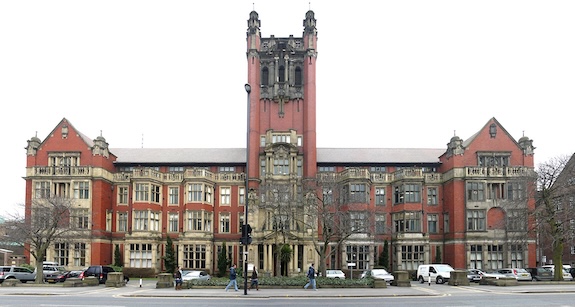Campus Legacies Workshop
Colonial history scoping workshop, May 2nd
23 June 2024
Campus Legacies: Colonial history scoping workshop
On 2nd May 2024 the Centre for Heritage and the Black History Month Group at Newcastle University held a workshop for the Black History Month project King Leopold II of Belgium & the Armstrong Building, as part of the ‘Campus Legacies’ work undertaken by the Centre.

The workshop
The workshop brought together Newcastle University history/heritage staff and scholars and practitioners from other institutions to discuss other projects that have critically examined colonial legacies of academic institutions, and to explore possible avenues for Newcastle University to apprehend its own colonial history in substantive, non-performative ways.
In 2022, students in the School of Mathematics, Statistics, and Physics came across a donation record for a new university building for the Durham College of Science; this building would later be known as the Armstrong Building, the centrepiece of Newcastle University’s campus. Included in the list of donors to the building was ‘His Majesty the King of the Belgians’: Leopold II, who sent £500 in support of the fundraising efforts. By the date of the donation, Leopold II was already known to have committed colonial atrocities in his private colony in Africa, the Congo Free State.
The workshop discussed projects on colonial histories in institutions such as the University of Edinburgh and the University of Glasgow; the colonial contexts of these institutions differ to Newcastle, but some underlying common principles emerged from the discussions. The importance of working with impacted communities, undertaking proactive (rather than reactive) work, and focusing on substantive change and engagement rather than performative flourishes emerged as key principles for effective anti-colonial and reparative work.
Newcastle’s industrial and imperial history is embedded in the city, university, and the Armstrong Building itself. With the aforementioned principles in mind, we now have to re-assess this history to consider how we draw together the city’s pride in industrialism with a contextualized understanding of its darker colonial side. The group, having benefitted hugely from the external expertise shared in this workshop, will now move forward to engage a wider community of staff, students and city and regional partners in mapping out the next steps.
.jpg)